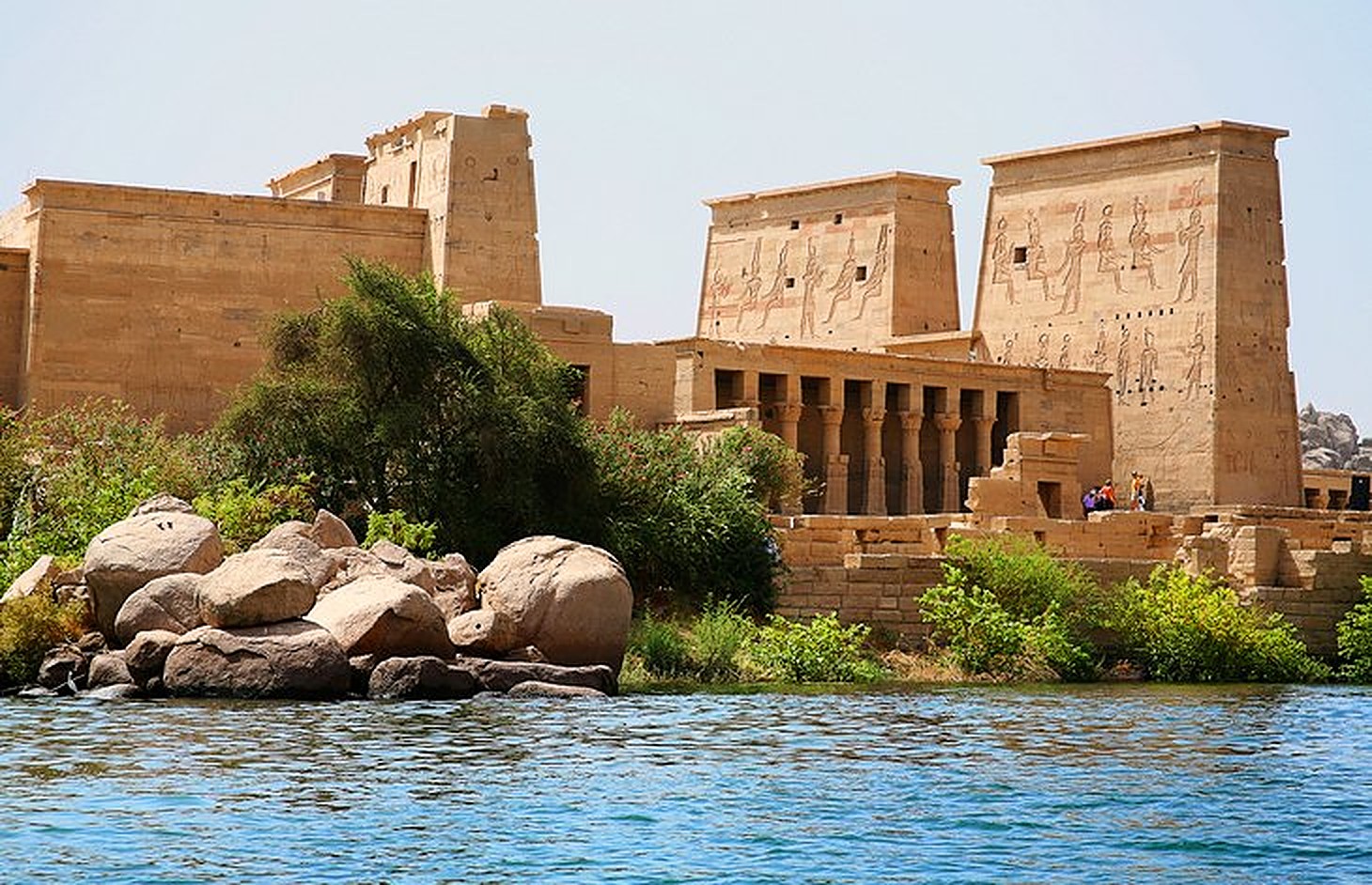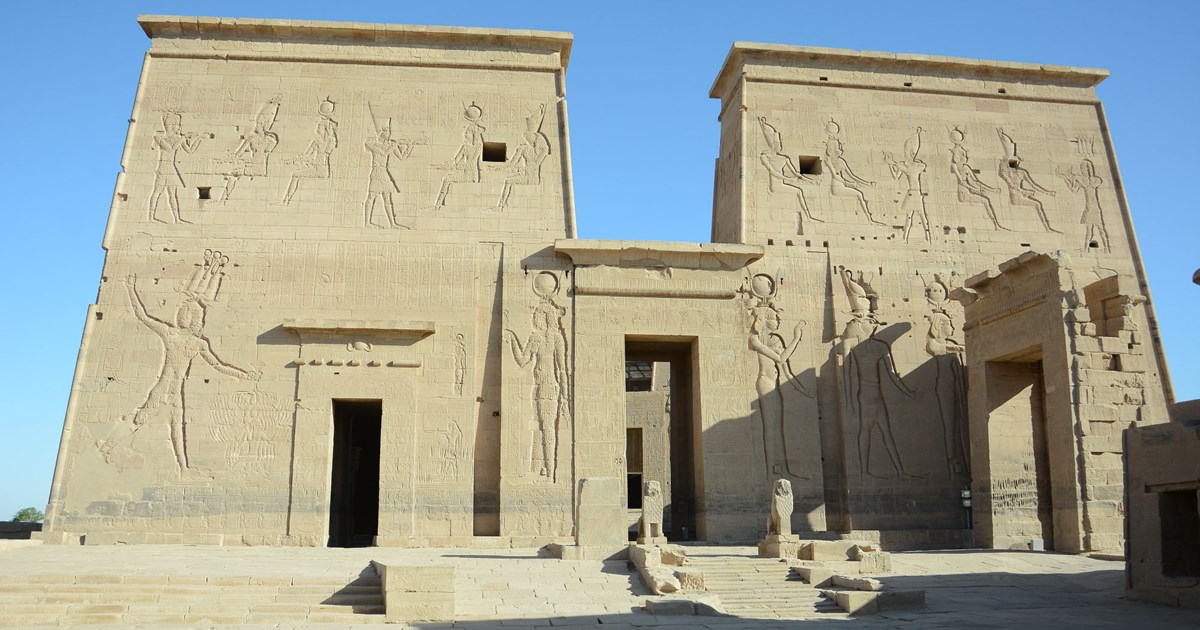The Philae Temple complex, located on an island in the Nile near Aswan, Egypt, is a remarkable symbol of Egypt’s rich religious and architectural history. Dedicated primarily to the goddess Isis, it was constructed during the Ptolemaic period (around the 4th century BCE) and later expanded during the Roman era. The complex stands as one of the best-preserved examples of ancient Egyptian religious architecture, offering invaluable insight into the spiritual and cultural life of Egypt.
A Center of Worship for Isis
The Philae Temple was one of the most important religious sites in Egypt, dedicated to Isis, the goddess of magic, healing, and motherhood. It was a major pilgrimage destination for devotees seeking divine blessings and was central to the worship of Isis and her mythological narrative, particularly the stories surrounding her, Osiris, and Horus. The temple’s reliefs and carvings vividly depict these myths, showcasing the lasting influence of the goddess Isis in Egyptian culture.

Architectural Wonders and Cultural Significance
The complex is known for its impressive architecture, including the grand Temple of Isis, its beautifully decorated pylons, and the Roman kiosk built during the Roman period. The site also contains smaller temples dedicated to other gods such as Hathor and Osiris. These structures demonstrate the blend of ancient Egyptian design with later Roman influence, making Philae a unique fusion of two significant cultural periods.

The Relocation Effort and Preservation
The construction of the Aswan High Dam in the 1960s threatened to submerge Philae under Lake Nasser. In a remarkable international effort, the entire complex was relocated to higher ground. This preservation project, completed in the 1970s, involved disassembling the temples, cataloging each stone, and reassembling them on Agilkia Island. This effort not only safeguarded the temple complex but also set a precedent for global heritage conservation.

Philae Today: A Symbol of Ancient Egypt’s Enduring Legacy
Today, the Philae Temple complex stands as one of Egypt’s most cherished historical sites, drawing visitors from around the world. Its preservation allows for a deeper understanding of ancient Egyptian religion, mythology, and architectural mastery. The relocation effort also serves as a reminder of the global commitment to preserving cultural heritage for future generations.

Philae continues to inspire awe, representing Egypt’s enduring legacy and the remarkable achievements of its ancient civilization.

